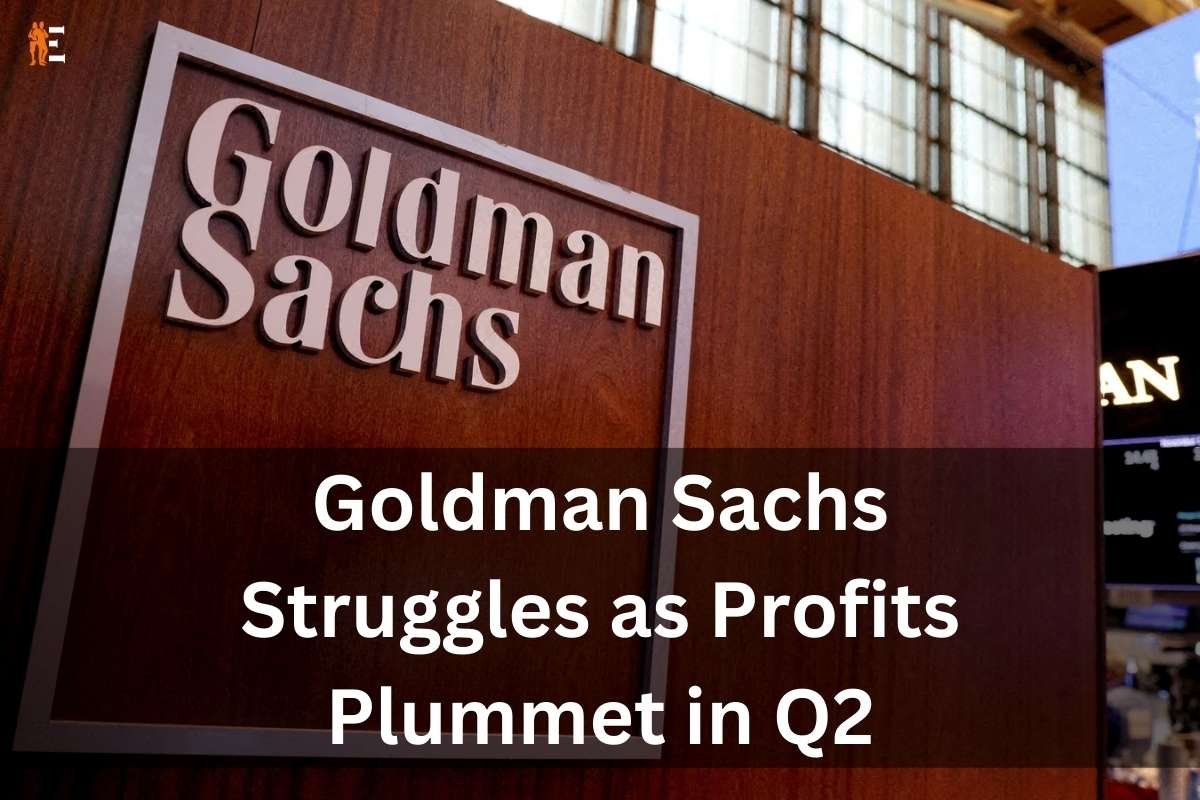Goldman Sachs (GS), the renowned Wall Street giant, faced a sharp decline in profits during the second quarter as its core businesses of dealmaking and trading encountered challenges. The company also suffered nearly $1 billion in impairment charges on its consumer and commercial real estate holdings.
Investment Banking Revenue Declines
The investment banking revenue at Goldman Sachs witnessed a significant decline of 20% compared to the same period last year, while trading dropped by 14%. Coupled with the impact of impairment charges, this led to a staggering 58% decline in earnings, resulting in profits of $1.2 billion. This marks the firm’s lowest quarterly profit since early 2020.
These disappointing results are likely to put CEO David Solomon under even more scrutiny as he grapples with various issues, including partner unrest and concerns about the firm’s overall strategy. Solomon is working to overcome the aftermath of a costly consumer-banking experiment that has weighed on the company.
During the quarter, Goldman Sachs incurred further costs related to its consumer retreat, taking a $504 million write-down attributed to the declining value of the specialty lender GreenSky, which the company acquired in 2021.
Goldman Sachs Profits Plunge in one of worst quarters under CEO Solomon
Committed To Strategic Execution
In response to the financial results, Solomon emphasized the firm’s commitment to strategic execution, expressing confidence that continued efforts would enable them to meet their return targets and deliver significant value to shareholders.
Despite Goldman Sachs downplaying its results ahead of the official announcement, the company’s stock closed up approximately 1% after Solomon’s conference call with analysts. During the call, Solomon expressed optimism about the direction of capital markets and their potential impact on the business, stating that the situation had improved over the last few weeks.
Slowdown at Other Banks
Goldman Sachs is not the only major bank experiencing a slowdown in investment banking and trading. Citigroup (C) and JPMorgan Chase (JPM) both reported drops in revenues from these areas, while Bank of America (BAC) saw an increase. Morgan Stanley (MS) recorded flat investment banking revenues compared to the previous year, with trading revenues down.
In the midst of the challenging financial landscape, Goldman Sachs saw some positive performance in equities trading, with revenues of $3 billion, up 1% from the previous year. However, fixed-income trading experienced a significant decline of 26%.
The global slowdown in dealmaking has been ongoing since last year, following a boom in 2021, leading many Wall Street firms to reduce bonuses and staff. The trend continued in 2023, with worldwide investment banking revenues for the second quarter falling 52% from the same period a year ago, according to Dealogic.
Tackling The Challenges
To navigate the challenging environment, Goldman Sachs has made significant job cuts, along with other Wall Street firms. The bank is cautiously optimistic about the future, with some executives and analysts foreseeing potential improvements in the latter half of 2023, especially considering a recent uptick in announced M&A deals.
Beyond Wall Street, Goldman Sachs is scaling back its ambitions of being a major presence on Main Street. The company’s efforts to expand into the consumer space, starting with savings accounts and personal loans in 2016 under former CEO Lloyd Blankfein and continuing under Solomon, have proven to be challenging. Solomon acknowledged earlier this year that the consumer business had lost $3 billion since 2020, and the company now aims to sell GreenSky and potentially end its partnership with Apple.











